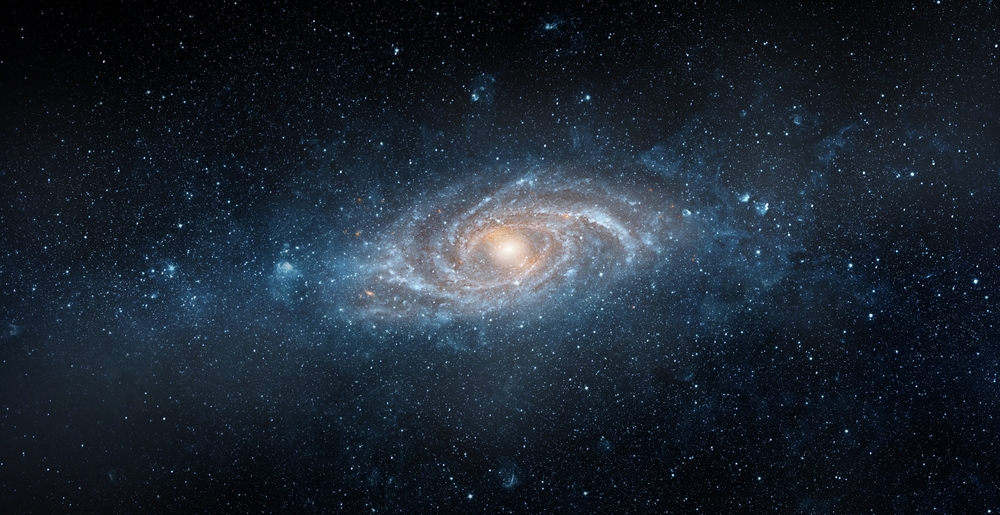Think time travel isn’t real? These surprisingly accurate predictions might make you think twice. From science fiction authors to scientists and futurists, some people seem to have had an uncanny ability to peek into our present from decades or even centuries ago. Here’s a look at some of the most mind-bending predictions that turned out to be spot-on.
1. Mark Twain’s Internet Prediction (1898)

In his short story “From the ‘London Times’ of 1904,” Twain described a “telelectroscope” that would create a global network allowing people to see and talk to each other instantly from anywhere in the world. He imagined this device would create a “limitless distance” of connection between people, making the world feel smaller and more interconnected. The wild part isn’t just that he predicted video calls—it’s that he nailed how this technology would fundamentally change human relationships and create global communities. Twain even predicted that this network would lead to people sharing mundane details of their daily lives with strangers, essentially describing social media over a century before it existed.
2. Ray Bradbury’s Earbuds (1953)

In “Fahrenheit 451,” Bradbury described “little seashells” that fit in ears and brought an “electronic ocean of sound, of music and talk.” He went into shocking detail about how people would use these devices to tune out the world around them, listening to their own private soundtracks as they went about their daily lives. The description is so precise that it’s almost like he had a pair of AirPods sitting on his desk while writing. Even more impressive, he predicted how these devices would contribute to social isolation and people becoming disconnected from face-to-face interactions.
3. Arthur C. Clarke’s Satellite Communication (1945)

Years before Sputnik, Clarke published a paper in Wireless World magazine detailing how geostationary satellites could be used for global communications. He explained exactly how three satellites in specific orbits could provide worldwide coverage, essentially describing the system we use today for everything from GPS to satellite TV. The mathematical precision of his prediction is what makes it truly remarkable—he even calculated the exact altitude (22,300 miles) where satellites would need to orbit to remain stationary relative to Earth. Clarke’s vision was so accurate that the orbit he described is now officially named the Clarke Orbit.
4. Robert Boyle’s Medical Marvels (1660)

The father of modern chemistry made a list of future inventions that reads like a current medical textbook. He predicted “the cure of diseases at a distance,” which perfectly describes telemedicine, and “the prolongation of life” through artificial means, foreseeing modern life support systems. Boyle even described what we now know as organ transplants and pain management techniques, calling them “the art of flying” and “the recovery of youth.” His list is particularly impressive because he made these predictions when bloodletting was still considered cutting-edge medicine.
5. John Brunner’s Social Media Chaos (1969)

In “Stand on Zanzibar,” Brunner described a 2010 where people were overwhelmed by constant information, fake news, and mass shootings. He predicted personalized advertising, electric cars becoming mainstream, and even the decline of traditional marriage. The novel describes “information sickness” where people become addicted to constant news and updates—basically describing our modern TikTok and Instagram addiction. His description of people carrying portable electronic devices that kept them constantly connected to news and entertainment was so accurate it’s almost unsettling.
6. Jules Verne’s Moon Shot (1865)

In “From the Earth to the Moon,” Verne didn’t just predict space travel—he got frighteningly specific about how we’d actually do it. He described a launch site in Florida (just like Cape Canaveral), a spacecraft made of aluminum alloy, and a crew of three astronauts. Even more crazy, he calculated the exact speed needed to escape Earth’s gravity and predicted the weightlessness astronauts would experience in space. The fact that he described splashdown in the Pacific Ocean, just like the Apollo missions would do a century later, makes this prediction almost spooky in its accuracy.
7. E.M. Forster’s Video Calls (1909)

In “The Machine Stops,” Forster described a world where people communicate primarily through screens in their rooms, rarely meeting in person. His description of people having “instant messaging” capabilities and being able to see and hear each other through screens is basically FaceTime or Zoom. The story’s depiction of people living in isolation, dependent on technology for connection, feels especially prophetic after the global pandemic.
8. Marshall McLuhan’s Global Village (1964)

McLuhan coined the term “global village” and predicted how electronic media would transform the world into an interconnected community. He described how instant communication would break down cultural barriers and create a world where events happening anywhere would feel immediate and personal to people everywhere. His prediction about how this would lead to information overload and people becoming more tribal in their media consumption was spot-on. McLuhan even foresaw how this new media landscape would affect politics and social movements, essentially describing how social media would transform activism and public discourse.
9. Philip K. Dick’s Targeted Advertising (1956)

In “The Minority Report,” Dick described a world where billboards would scan people’s retinas and deliver personalized advertisements. While we haven’t quite reached retinal scanning (yet), his prediction of individualized, targeted advertising based on personal data is exactly what happens every time you open a web browser. He even predicted how this technology would be used to track people’s movements and preferences, creating detailed profiles of their habits and interests. The story’s exploration of the privacy implications of this technology feels particularly relevant in our age of data mining and surveillance capitalism.
10. H.G. Wells’ Atomic Bomb (1914)

In “The World Set Free,” Wells described atomic bombs three decades before they became reality. He predicted not just the explosive power but also the lasting effects of radiation and the political implications of such weapons. Wells even correctly predicted that these weapons would first be used in a world war, though he got the specific war wrong. His description of how these weapons would change warfare forever and create a new kind of global political tension was remarkably prescient.
11. Isaac Asimov’s Robot Ethics (1942)

In his “I, Robot” series, Asimov didn’t just predict robots—he foresaw the ethical dilemmas we’d face when developing AI. His Three Laws of Robotics have become a genuine framework for discussing AI ethics in the real world. He predicted how robots would gradually become more sophisticated and autonomous, raising questions about their rights and responsibilities. Asimov even anticipated the debate about whether AI could develop consciousness and what that would mean for humanity.
12. Douglas Adams’ Universal Translator (1979)

In “The Hitchhiker’s Guide to the Galaxy,” Adams described the Babel Fish, a universal translator that could instantly translate any language. While we don’t have an actual fish that does this, we do have apps and devices that provide real-time translation of multiple languages. His prediction about how this technology would break down language barriers and change international communication was remarkably accurate. Adams even predicted how this technology would lead to both better understanding and new forms of miscommunication between cultures.
13. Aldous Huxley’s Mood-Altering Drugs (1932)

In “Brave New World,” Huxley predicted the rise of mood-altering pharmaceutical drugs and their impact on society. He described a future where people would take pills to manage their emotions and mental state, essentially predicting both antidepressants and recreational drugs. His insights about how these drugs would be used for social control and personal escape were particularly prophetic. Huxley even anticipated the debate about whether these substances would help or harm society.
14. William Gibson’s Cyberspace (1984)

In “Neuromancer,” Gibson didn’t just predict the internet—he created the term “cyberspace” and described virtual reality before either existed. His vision of a global computer network that people could mentally connect to and navigate through is basically what VR and the internet are becoming. Gibson even predicted how this technology would lead to new forms of crime and corporate espionage. His description of hackers and digital security measures feels like it could have been written yesterday.
15. Nikola Tesla’s Wireless World (1909)

Tesla predicted a world where wireless technology would allow instant communication and power transmission across the globe. He described how people would carry small devices that would allow them to communicate and access information from anywhere. Tesla even predicted how this technology would revolutionize business and personal relationships. His vision of a wirelessly connected world is essentially what we live in today, just with smartphones instead of the specific devices he imagined.
16. George Orwell’s Surveillance State (1949)

“1984” wasn’t just about totalitarianism—it predicted the rise of surveillance technology with scary accuracy. Orwell described two-way screens that could watch people while displaying content, essentially predicting smart TVs and webcams. His prediction about how governments and corporations would use technology to monitor citizens has proven particularly accurate. The novel’s exploration of how surveillance affects behavior and society feels especially relevant in our age of digital tracking and data collection.
17. Frederik Pohl’s Online Shopping (1955)

In “The Space Merchants,” Pohl described a future where people would shop through their computers, receiving targeted advertisements based on their personal information. He predicted how this would change retail, with physical stores becoming less important as people shopped from home. Pohl even anticipated how this would lead to new forms of marketing and consumer manipulation. His description of people becoming addicted to the convenience of online shopping while being constantly bombarded with personalized ads is basically a description of modern e-commerce.









